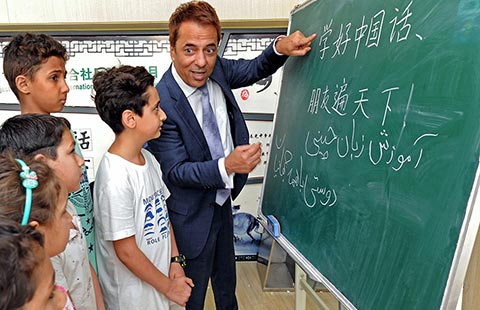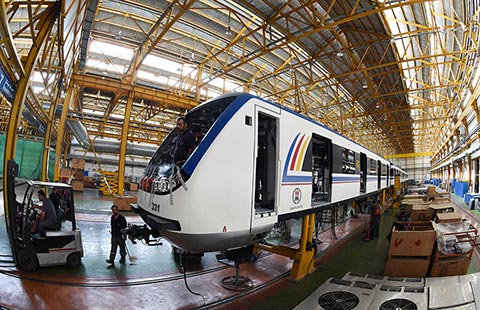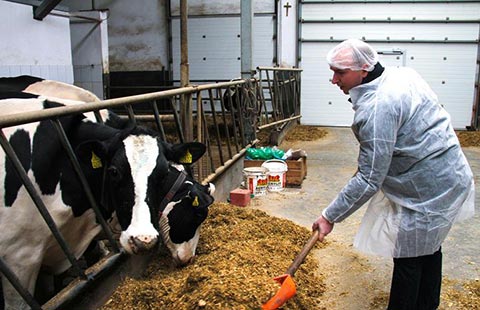China determined to push capacity-cut drive
BEIJING - China is determined to gain some ground on its key battlefield - addressing industrial overcapacity.
The phasing out of sub-standard production capacity will continue, especially steel and iron, coal-mining and coal-fired power plants, so that the targets set for the year can and will be achieved, said a statement released after a State Council executive meeting on Wednesday.
By the end of June, all facilities to produce inferior-quality steel bars will be dismantled across the whole country. All coal mines scheduled to close this year will be so by the end of November, as agreed by the attendees of the meeting, which was presided over by Premier Li Keqiang.
As excess capacity has weighed on China's overall economic performance, cutting overcapacity is high on the reform agenda. In 2016, China completed both its annual targets for coal and steel capacity reduction ahead of schedule.
The government work report this year stated that China will continue to cut overcapacity in bloated sectors, with targets to slash steel production capacity by around 50 million tons and coal by at least 150 million tons this year.
As of Wednesday, 31.7 million tons of steel and iron capacity and 68.97 million tons of coal capacity had been cut, accounting for 63.4 percent and 46 percent of their annual goals respectively.
While the government scored an initial win, there were a few setbacks and the battle is far from over.
The enthusiasm for the drive is waning with rising demand for steel and coal, difficulty in relocating former employees and digesting the debt, according to Feng Qiaobin with the Chinese Academy of Governance.
China's steel mills have reported good profits since this year as speculators have splurged on higher prices after the government pledged to increase spending on infrastructure construction.
In addition, bowing to government pressure, some firms could just halt production temporarily to meet their assigned tasks, instead of seriously eliminating capacity. Reports of unofficial production in steel and coal have already emerged due to the recent price rallies.
From glut to dearth, the sharp turn of events saw some economists questioning whether policy-driven capacity reductions, despite the short-term miraculous effects, would work in the long run.
Global ratings agency Fitch said in a recent report that China's steel and coal capacity cut targets were tough to hit given the incentive for companies to voluntarily close mines and factories has weakened as prices have recovered and profitability has improved.
The government is well aware of the situation and is committed to allowing the market more say, with the responsibilities of the government and the market more clearly defined.
Wednesday's State Council meeting resulted in an agreement to adopt more methods based on market rules and related laws while phasing out outdated capacities. It also decided to eliminate illegal production facilities and prevent those that have been shutdown from opening again.
Capacity cuts also mean that less taxes are collected by local authorities - resulting in job losses across the board. Without the intervention of the central authorities, local authorities would be very reluctant to do what is needed, said Feng.
To strike a balance, Feng suggested the market should be responsible for the capacity reductions, while the government should handle the reemployment of redundant workers.
Indeed, the attendees of the State Council meeting stressed that relocating redundant employees was a priority and they would be offered financial support from the government to help them find new employment and guarantee their basic living needs.
In 2016, the central government spent over 30 billion yuan ($4.4 billion) providing aid to 726,000 employees affected by the downsizing of the steel and coal industries.
China plans to assist 500,000 workers made redundant during its capacity cuts in steel and coal sectors this year.
Subsidies will go to employers that re-employ laid-off staff in other posts inside the company, and the government will offer free retraining.
Most important, the key of China's capacity-cuts drive is not simply closure of steel plants or coal mines, but lies in the nurturing of new impetus that will eventually lead to the overall restructuring of Chinese economy, said Dong Ximiao, researcher of Renmin University of China.
- Belt & Road not strategy to export overcapacity: Expert
- Keep up efforts to cut overcapacity
- Cutting overcapacity helps tackle environmental problems, experts say
- Laid-off workers a priority as China cuts overcapacity, Premier says
- Substantially Enhancing Industrial Concentration:A Fundamental Solution to Cutting Steel Overcapacity























